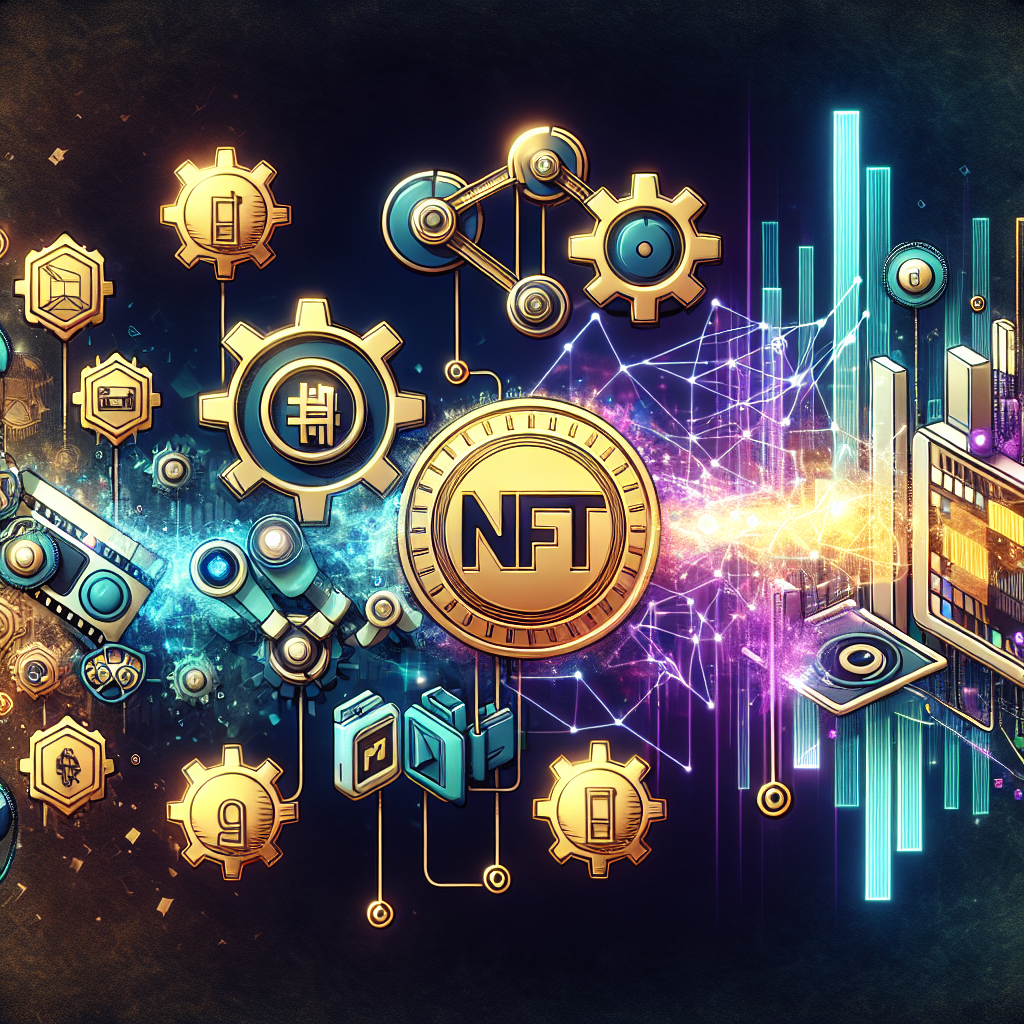In recent years, Non-Fungible Tokens (NFTs) have dramatically reshaped the way we think about ownership and value in the digital realm. While much of the initial wave of interest focused on digital art and collectibles, NFTs have the potential to extend far beyond the boundaries of the art world. This article explores some of the most innovative use cases of NFTs across various industries, showcasing how this technology is transforming the way we interact with digital assets.
1. Entertainment and Media
Music Ownership and Distribution
The music industry has begun to embrace NFTs as a means to empower artists and redefine how they distribute their work. Musicians can release NFTs that represent exclusive rights to their songs, albums, or concert experiences. For example, an artist may sell an NFT that grants the owner access to backstage passes or exclusive live performances. This shifts the paradigm of music distribution, allowing creators to connect more directly with fans and retain a larger share of the revenue.
Film and Content Licensing
NFTs can revolutionize the way filmmakers manage rights and licensing. By tokenizing film rights into NFTs, creators can sell fractional ownership of their films, allowing investors and fans to participate in the financing and revenue generation. Additionally, NFTs can be used to authenticate limited releases, helping to ensure that filmmakers maintain control over their intellectual property.
2. Gaming and Virtual Worlds
In-Game Assets
The gaming industry has become one of the most evident beneficiaries of NFT technology. Players can own, buy, sell, and trade in-game assets like skins, weapons, and virtual real estate as NFTs. Games like "Axie Infinity" and "Decentraland" leverage NFTs to create vibrant economies where players can earn real value through their gameplay. This not only enhances player engagement but also introduces a new breed of economic opportunities within virtual environments.
Cross-Game Interoperability
One of the most exciting prospects of NFTs in gaming is their potential for cross-game interoperability. In the future, players may use their unique assets across multiple games, providing a level of flexibility and value that traditional gaming ecosystems have not offered. Imagine a sword acquired in one game that can be used in another, fundamentally altering how we perceive ownership and value within the gaming landscape.
3. Real Estate
Fractional Ownership and Investment
The real estate market is ripe for disruption with the advent of NFTs. By tokenizing properties as NFTs, real estate developers can sell fractional ownership, allowing more investors to participate in high-value assets. This democratizes access to real estate investment and increases liquidity in the market. Additionally, smart contracts can automate rental agreements and property transfers, streamlining transactions while reducing reliance on intermediaries.
Virtual Real Estate
With the rise of metaverse platforms, virtual real estate is becoming a hot commodity. NFTs can represent ownership of parcels of virtual land, enabling users to build, develop, or monetize their digital spaces. As virtual worlds gain traction, the implications for branding and advertising within these environments can extend even further, leading to new marketing strategies and consumer engagement.
4. Supply Chain and Authenticity
Provenance and Traceability
NFTs can play a transformative role in supply chain management by providing unique identifiers for products. Brands can tokenize their goods, allowing consumers to verify the authenticity and origin of a product via the blockchain. This is particularly significant for luxury brands and perishables, where provenance is crucial for maintaining quality and trust.
Sustainable Practices
By utilizing NFTs to trace the journey of products, companies can enhance transparency and accountability, promoting sustainable practices. Consumers increasingly prioritize eco-friendly brands, and knowing the environmental impact of a product—from sourcing materials to delivery—can influence purchasing decisions.
5. Education and Certification
Credentialing and Achievements
Educational institutions are beginning to adopt NFTs for certification and credentialing. Degrees, diplomas, and other accolades can be securely issued as NFTs, providing an immutable record of an individual’s achievements. This not only simplifies the verification process for employers but also empowers students by giving them digital assets they can showcase in their online profiles.
Continuous Learning
As professional development continues to grow, NFTs can facilitate micro-credentialing, allowing professionals to earn tokens for completing specific courses or training sessions. These tokens can be shared or traded on job platforms, effectively providing a new dimension to representation in the workforce.
Conclusion
While NFTs are often associated with art and collectibles, their innovative applications across various industries demonstrate their transformative potential. From revolutionizing music distribution to redefining the ownership of virtual and real assets, NFTs are poised to change the way we interact with digital content. As the technology matures and more use cases emerge, we can expect NFTs to play an increasingly significant role in shaping the future of commerce, creativity, and community. The possibilities are vast, and the journey has only just begun.

